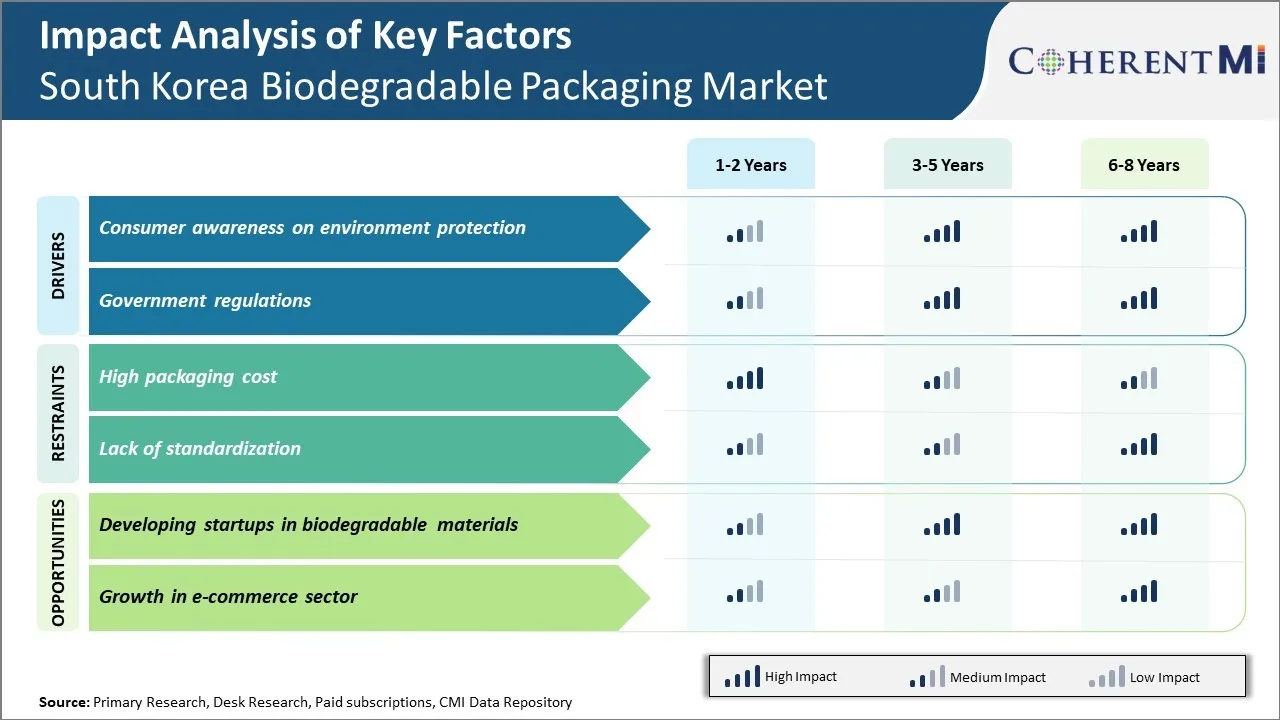South Korea Biodegradable Packaging Market Trends
Market Driver – Consumer Awareness on Environment Protection
There has been steady growth in the awareness among South Korean consumers regarding the importance of environment protection and sustainability. More and more people understand how conventional plastic packaging is creating waste and polluting the land and water bodies. Young population in particular is concerned about the threat plastic poses to the environment. Rising education levels and access to internet have enabled effective information dissemination around plastic pollution crisis. People are realizing small changes in their daily routine like refusing plastic bags or straws, reducing usage of disposable cutlery and items can contribute significantly towards waste management. Growing popularity of slow living concept has motivated consumers to make responsible choices and switch to eco-friendly alternatives.
Educating huge customer base through campaigns by NGOs and socially responsible companies has triggered mindset change at grassroots level. Customers have started supporting brands which adopt green packaging solutions. Social media is playing a vital role in raising issues around non-biodegradable plastics through shares and discussions. With increased awareness, demand for sustainable products has picked up substantially. Consumers now carefully read labels to identify certified compostable or recyclable packaging and actively look for such options while shopping.
Market Driver – Government Regulations
Government of South Korea has acknowledged plastic waste as serious environmental challenge. Issuing strict regulations has become important tool to curb plastic pollution and move the country towards circular economy. Mandating biodegradability standards for packaging is a significant step taken to phase out harmful single use plastics. Manufacturers and retailers now have limited time to ensure their product wrappings and carry bags meet the specified degradation time limits under organic conditions. Ban on specific petroleum-based plastics like Polystyrene food containers and shopping bags below certain microns has come into effect from past year.
Regular compliance checks are conducted to monitor adherence to the new laws and penalize violations. Higher reuse and recycling targets have been assigned to plastic producers as part of extended producer responsibility guidelines. Financial incentives are offered for development of advanced recycling technologies and setting up necessary waste infrastructure. Public procurement preference is given to vendors utilizing bio-packaging made from renewable resources. Upcoming regulations on carbon labeling and eco-labels will further promote selection of climate-friendly options in the market. While regulations impose compliance cost for organizations, it has accelerated innovation in bioplastics domain on a large scale.

Market Challenge – High Packaging Cost
One of the major challenges currently being faced by the South Korea biodegradable packaging market is the high packaging cost associated with biodegradable materials compared to traditional plastics. While biodegradable packaging helps reduce environmental pollution caused by plastic waste, the raw materials required for their production such as PHAs, PLA, starch blends etc. are generally more expensive than regular plastics. The additional costs arise due to small production volumes of bioplastic resins as well as high research and development investments made by manufacturers in order to make the materials economically feasible. This premium pricing of biodegradable packaging solutions makes them unattractive for widespread adoption for cost-sensitive consumers and industries.
However, packaging producers are constantly working on improvements to bring down the price differential through economies of scale, innovation in production techniques and supply chain optimization.
Market Opportunity – Developing Startups in Biodegradable Materials
The growing awareness about sustainability has opened up significant opportunities for startups working in the domain of biodegradable materials in South Korea. Several entrepreneurial ventures are engaged in developing novel bio-based polymers, composites and packaging formats that can replace conventional plastics while addressing concerns around functionality and affordability.
Some startups are focusing on utilizing agricultural waste and byproducts to manufacture bioplastics, thus reducing manufacturing costs. There is an active accelerator and incubator ecosystem in South Korea that is guiding and mentoring new businesses. The Korean government is also supporting these startups through funding programs and technical assistance. If successful, these startups can help dramatically accelerate the commercialization of advanced biodegradable solutions and drive widespread adoption across different end-use industries.